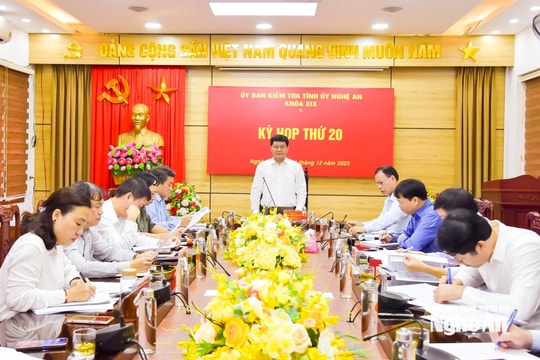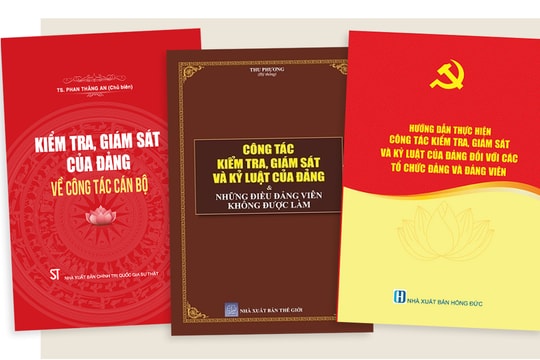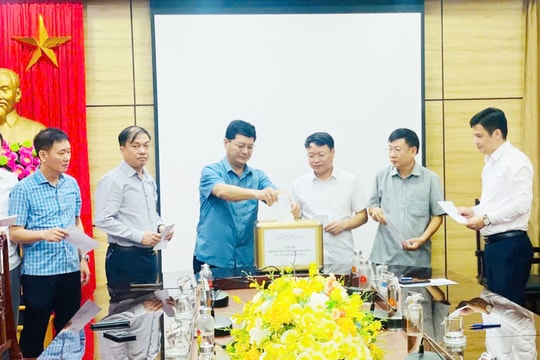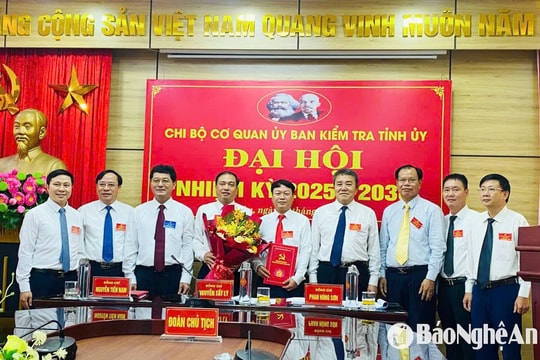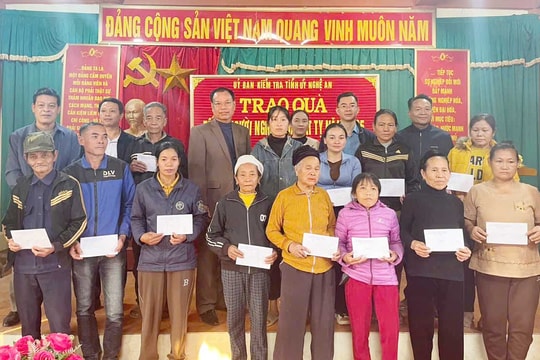Applying Ho Chi Minh's thought on performing inspection and supervision tasks at the Party Cell of the Provincial Party Committee's Inspection Commission
Ho Chi Minh's thoughts on inspection and supervision not only have theoretical significance but also profound practical value, and are an important methodology for the current work of Party building and rectification.
President Ho Chi Minh, the founder and trainer of our Party, not only left our entire Party and people a great revolutionary cause but also left a valuable ideological legacy, in which the ideology on inspection and supervision work has particularly great value.
During his lifetime, he always emphasized the key role of inspection work, considering it an organic part of leadership. He once advised: “Inspection work is an important part of the entire leadership work of the Party. Leadership without inspection is considered as no leadership at all.”
That saying is both simple and profound, clearly expressing the consistent view that if leadership wants to be substantial, resolutions want to come into life, and policies want to be turned into actions, there must be inspection and supervision.
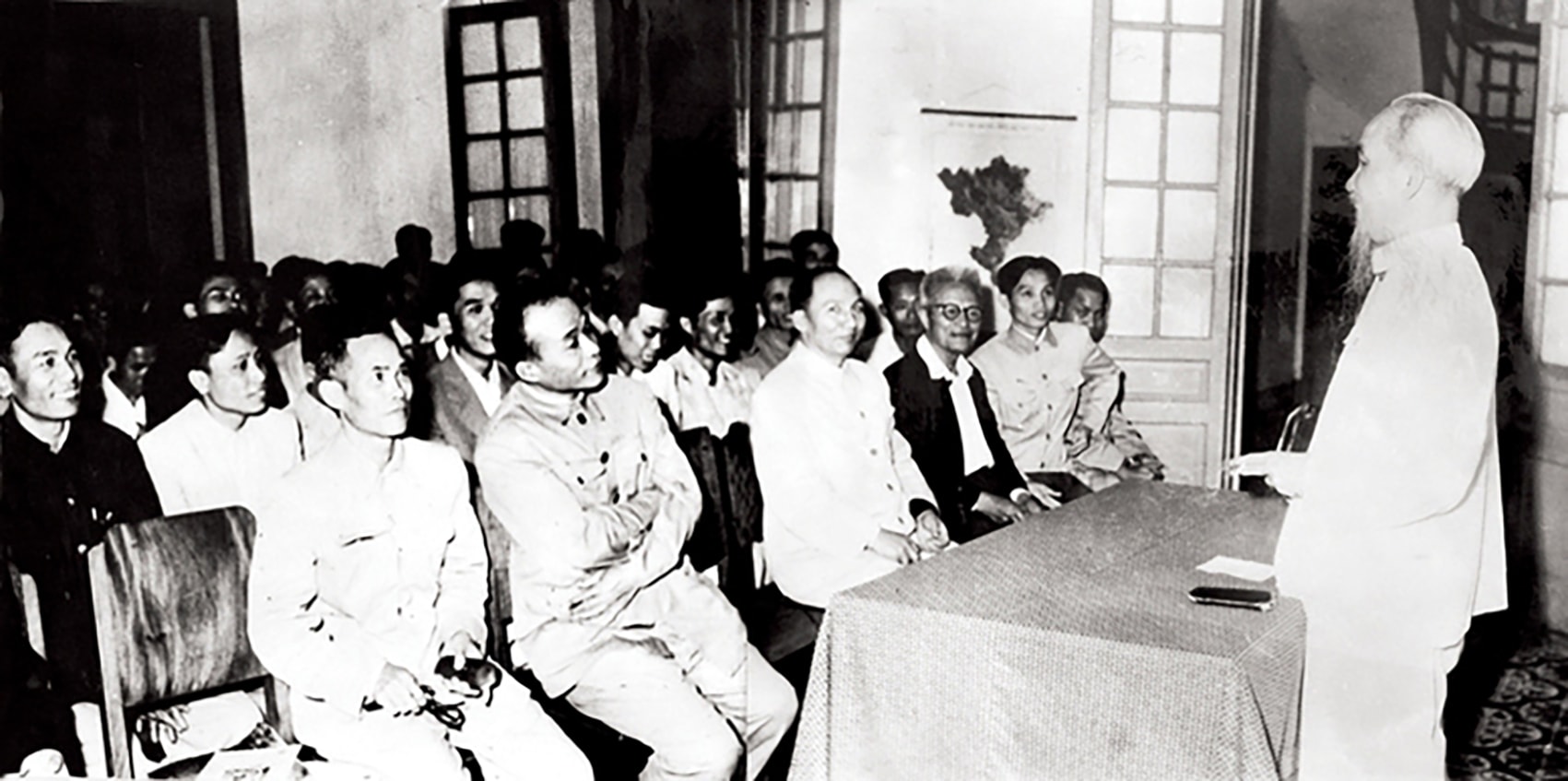
In Ho Chi Minh's thought, inspection is not only to find out mistakes and then handle them, but more than that, it is a method to educate, warn, prevent, correct deviations, encourage the spread of good, to maintain the discipline and order of the Party, and to constantly strengthen the people's trust in the Party. He once emphasized: "Nine-tenths of the shortcomings in our work are due to lack of inspection." This is not only a reminder but also a conclusion from leadership practice, from victories as well as bloody lessons in the Vietnamese revolution. When the first specialized inspection agency of the Party was established, Uncle Ho affirmed that correct policies are the source of victory, but from correct policies to real victory, there must be organization, struggle and especially regular and continuous inspection and supervision.
He pointed out: “Correct policy is the source of victory… Once there is a correct policy, the success or failure of that policy depends on the way the work is organized, the way the cadres are selected, and the way the inspection is carried out. If these three things are sloppy, no matter how correct the policy is, it will be useless.”
That means, no matter how correct a resolution is, if the implementation is weak, if the selection of cadres is not suitable, if there is a lack of inspection and supervision, it will not be able to bring results. On the contrary, only through inspection can we know the reality, discover advantages to replicate, shortcomings to correct, and violations to handle promptly. He emphasized: "Only through inspection can we mobilize the positive spirit and great strength of the people, clearly know the capacity and shortcomings of cadres, and promptly correct and help."
What is special about Ho Chi Minh's thought is that he always viewed inspection work not only through an organizational perspective but also through an ethical perspective. He required that officials doing inspection work must be fair, upright, honest, unbiased, not indulgent, not overlook shortcomings because of personal feelings, but at the same time not be extreme or oppressive. The interests of the revolution and the people must be the target of inspection, and power must not be used to serve personal purposes.
In terms of style, Ho Chi Minh required that inspections must be closely related to reality, must go to the place, see the place thoroughly, must listen from many sides, must evaluate comprehensively, must have clear conclusions, and assign specific responsibilities. He never accepted carelessness, formality, or generality in inspection work.
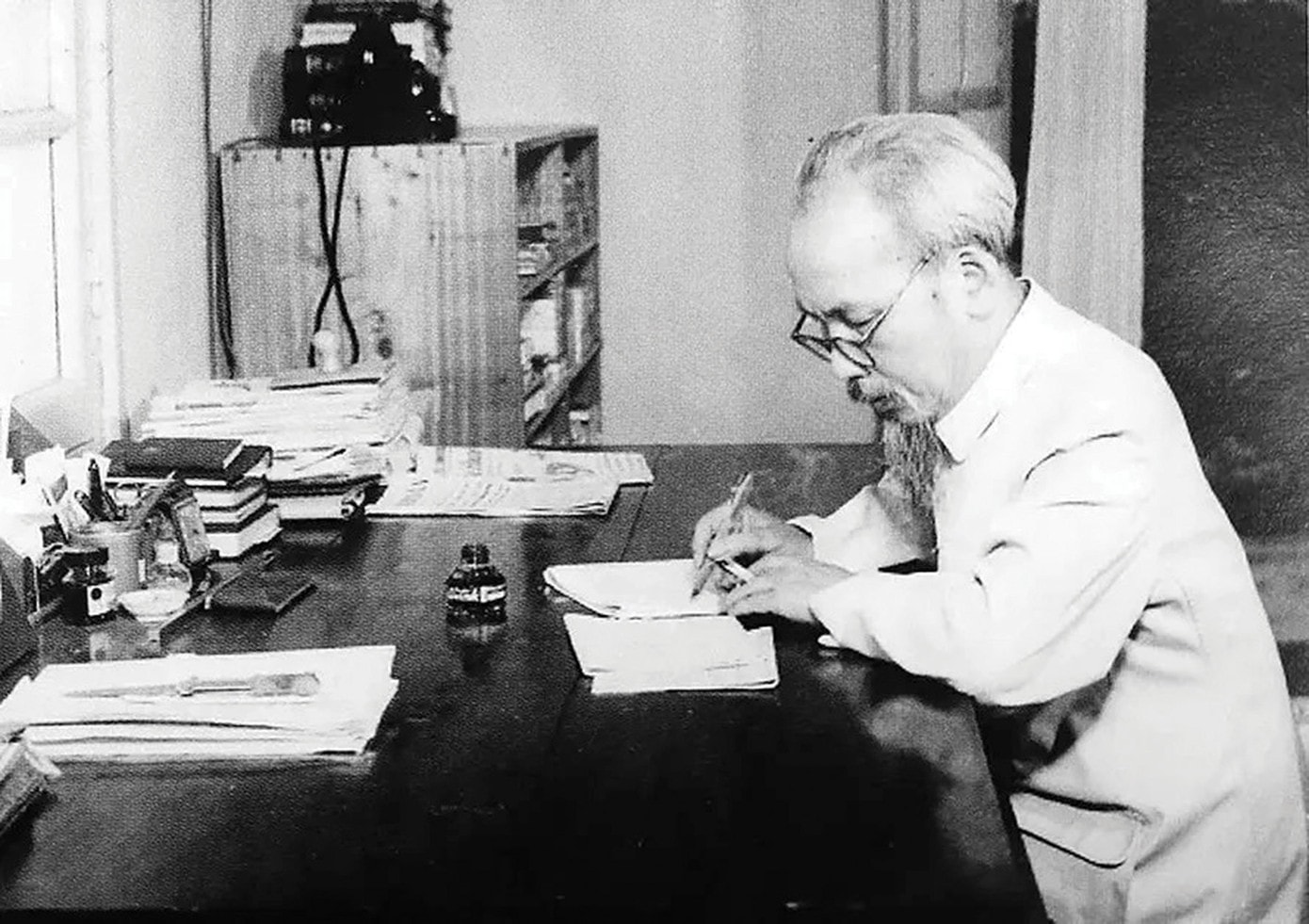
Therefore, Ho Chi Minh's thoughts on inspection and supervision not only have theoretical significance but also profound practical value, and are an important methodology for the current work of Party building and rectification. Especially, in the context of our Party stepping up the fight against corruption and negativity, tightening discipline and order, studying and applying his thoughts becomes even more urgent.
Applying that ideology, the Party Cell of the Nghe An Provincial Party Committee's Inspection Commission in the 2020 - 2025 term has achieved many remarkable results. With the spirit of closely following the functions and tasks, the Party Cell always understands that inspection and supervision work is a key step to improve the quality of leadership. During the term, the Party Cell has led, directed, and advised the Provincial Party Committee Standing Committee to strictly implement resolutions and regulations on inspection and supervision work, completing the entire annual and term-wide inspection and supervision program. Notably, the scope of inspection and supervision focuses on sensitive areas that are prone to negativity such as land, investment, finance, and personnel work, which are areas that have a direct impact on socio-economic development and people's trust.
The results achieved were very specific and impressive: The Party Cell led and directed cadres and party members of the Provincial Party Committee's Inspection Commission to advise the Provincial Party Committee's Inspection Commission to conduct inspections of 67 party organizations and 119 party members; supervise 60 party organizations and 120 party members. At the same time, it advised on checking signs of violations in 14 party organizations and 20 party members; inspected the implementation of inspection and supervision tasks in 34 organizations; inspected finances in 16 organizations; supervised thematic supervision of 8 organizations and 17 party members; resolved complaints and denunciations of 3 party members; inspected the asset declaration of 47 cadres and party members.
Based on those results, it advised to discipline 1 party organization and 12 party members under the management of the Provincial Party Standing Committee; 1 party member under the management of the Provincial Party Executive Committee; 7 party organizations and 17 party members under the authority of the Provincial Party Committee's Inspection Committee; at the same time, it proposed that the Central Inspection Committee discipline 1 party member.
In particular, a number of violations were handled right from the prosecution and investigation stages, demonstrating timeliness, proactiveness, and effectiveness, contributing to preventing consequences and maintaining strict Party discipline.
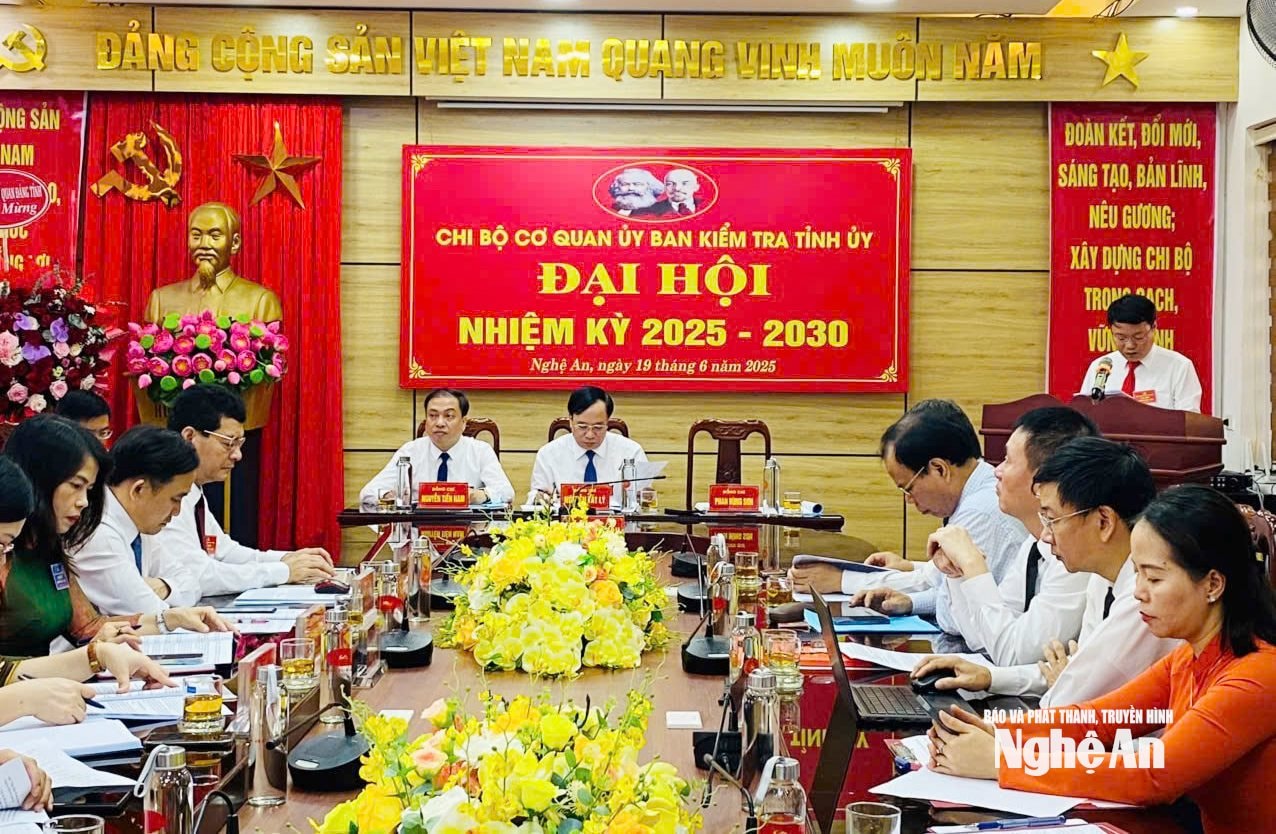
Along with performing inspection and supervision tasks, the Party cell also pays special attention to innovating methods in the direction of "timeliness - flexibility - substance - efficiency". Inspections must be focused and key, avoiding spreading and formality; focusing more on checking for signs of violations and thematic supervision related to complex and sensitive areas.
In handling violations, always emphasize education and prevention, attach importance to helping cadres and party members clearly recognize their shortcomings and correct them, instead of focusing only on disciplinary action. This is a creative application of Uncle Ho's viewpoint on inspection: Inspect to detect, to warn, to prevent, to help cadres progress.
The Party cell also combines inspection work with ideological work and Party building, considering it a unified entity. Regularly innovate the content of Party cell activities, focus on thematic activities, and seriously grasp new resolutions, documents, and policies of the Central and the province.
Every year, organize at least 2 seminars on studying and following Ho Chi Minh's ideology, morality and lifestyle, along with 1-2 seminars on professional expertise. Each party member is required to make a commitment to self-cultivation, training and setting an example; this commitment is regularly monitored and becomes an important basis for evaluating the quality of party members at the end of the year.
The work of summarizing, concluding and rewarding is carried out promptly, fairly and seriously. As a result, the quality of the staff and party members in the Party cell is increasingly improved: Every year, 6 comrades are classified by the agency head as having completed their tasks excellently; 5 comrades are honored as Emulation Fighters at the grassroots level; 6 comrades are classified by the Party cell as having completed their tasks excellently, of which 3 comrades are awarded outstanding awards. In 2024, the Standing Committee of the Provincial Agencies Party Committee also awarded a Certificate of Merit to 1 typical individual in studying and following Ho Chi Minh's ideology, morality and style. These are clear evidences showing the effectiveness of linking inspection with Party building, with studying and following Uncle Ho.
However, in addition to important results, the inspection and supervision work still has limitations and shortcomings. First of all, the awareness of some Party committees, Party organizations, cadres and Party members about the inspection and supervision tasks is not complete.
Some Party committees and inspection committees have not yet developed directions, tasks, programs, and plans for inspection and supervision throughout the term; the development of inspection and supervision programs and plans is still slow, and regulations and procedures for inspection, supervision, and party discipline at their level have not been developed. Due to lack of full awareness, in some places, leaders are not proactive, lack active coordination, and still show avoidance and fear of collision; lack of interest in leadership and direction. The leadership and organizational capacity of some grassroots Party organizations to carry out inspection work is still limited, and in some places they are even passive, waiting, and relying on the direction of superiors, not strong enough to prevent, prevent, and promptly detect violations.
In addition, the scope and content of inspections in some places and at some times lack focus and key points. The selection of inspection content and objects is often formalistic, not really focused on areas that are prone to violations, prominent issues, causing frustration in localities and units. There are situations where violations have occurred for a long time but have been slow to be detected and handled. The selection of inspection content and objects is sometimes evasive, afraid of difficulties, not focusing on the responsibilities of leaders, especially the same-level Party Committee members and cadres under the management of the same-level Party Committee.
In some places, inspection methods and processes are not up to standard, not scientific, or applied mechanically, leading to low efficiency. Methods to promote the spirit of self-awareness of party organizations and party members are still limited; many places have not created conditions for cadres and party members to participate in criticism and suggestions; in some places, there is prejudice and lack of goodwill towards critics. Mobilization and persuasion have not been done well, so the spirit of initiative and responsibility of coordination of party organizations and party members has not been promoted.
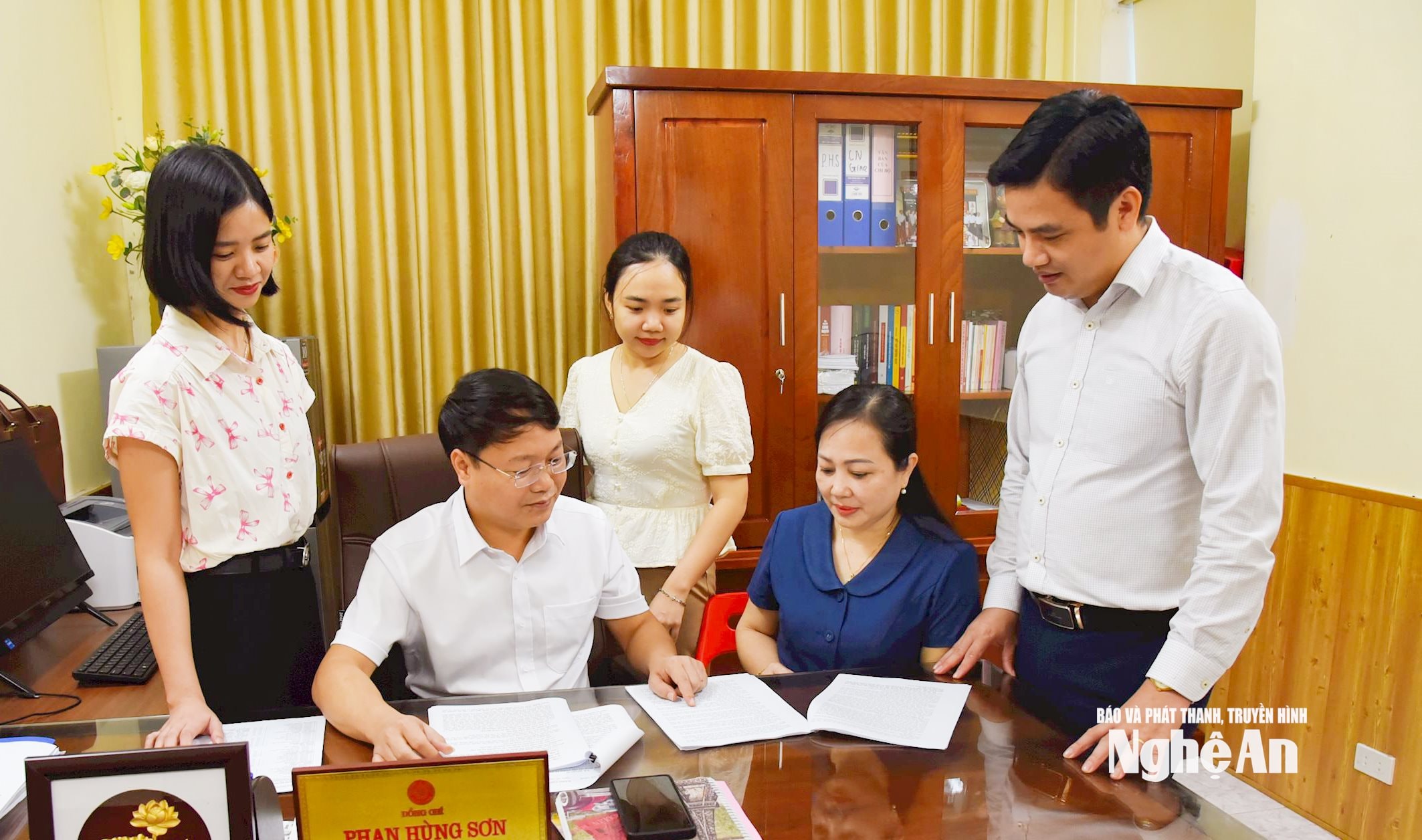
Another limitation is that the quality of the inspection staff is not uniform. Although most of them have good political will, good moral qualities, and good professional capacity, there is still a small number of weak in terms of qualifications, capacity, and skills. There are cases where there are signs of degradation in political ideology, morality, and lifestyle, and they even take advantage of their assigned duties and responsibilities to cause difficulties for party members and party organizations. Some reports on the results of inspection and verification are not clear, comprehensive, and unconvincing. Inspection committees in some places are not strong enough, lack initiative in advising and proposing solutions to handle urgent cases, and still work seasonally, on campaigns, or only conduct inspections when there is public opinion, and are not really proactive and regular.
From the above limitations, it can be seen that to improve the effectiveness of inspection and supervision work, there needs to be synchronous solutions:
First, must raise awareness and responsibility of Party committees, Party organizations, and inspection committees at all levels, especially the leaders. Reality has proven that where leaders have correct awareness, care, regularly direct, monitor, and orient the inspection work, this work will change dramatically, violations will be few, and the quality of organizations and cadres will be improved. It is necessary to thoroughly grasp the regulations of the Central Committee, especially Regulation No. 296-QD/TW dated May 30, 2025 of the Central Executive Committee, Instruction No. 08-HD/TW dated June 10, 2025, Plan 237-KH/UBKTTW dated June 11, 2025 of the Central Inspection Committee... At the same time, it is necessary to widely propagate so that cadres and party members clearly understand the purpose, requirements, and importance of inspection work, thereby creating consensus, determination, and self-awareness.
Monday, must develop the content and scope of inspection to ensure the right people, the right job, and limit scattered or missed inspections. Right from the beginning of the term, the Party Committee needs to base on the instructions of the superiors and the Party's regulations to quickly develop a plan for the entire term of inspection, closely following the congress resolution. The plan must clearly identify the subjects, time of implementation, and content appropriate to the functions and tasks. At the same time, Party cells must base on the actual situation to deploy the annual inspection task for Party members. Inspection must be comprehensive, both promoting advantages and pointing out limitations for Party members to overcome and continue to strive.
Tuesday, need to innovate inspection methods, skills, and processes. Must ensure science, democracy, and feasibility; focus on early detection to prevent and stop violations. Do a good job of mobilizing, persuading, promoting self-criticism and criticism; encourage the participation of the Fatherland Front, socio-political organizations, people, and media in supervision. Pay attention to self-inspection of party organizations, early detection for prevention. Focus on inspecting party members who show signs of degradation in political ideology, ethics, lifestyle, "self-evolution", "self-transformation"; compliance with regulations on what party members are not allowed to do; setting an example for cadres and party members, especially leaders. At the same time, it is necessary to closely coordinate the inspection and supervision work of the Party with the inspection, State Audit and law enforcement agencies, combining the supervision of the Party with the supervision of the State and the people.
In particular, it is necessary to build a team of inspection staff that is sufficient in quantity, has a reasonable structure, and meets quality requirements. It is necessary to build a system of appropriate standards for inspection staff, including political qualities, ethics, and professional capacity. Create conditions for staff to be trained and fostered regularly, and improve their qualifications. It is necessary to develop long-term and annual training plans, ensuring that staff are trained properly and professionally. Promote the rotation of staff according to Regulation No. 101-QD/TW dated July 6, 2023 of the Secretariat. At the same time, there must be appropriate incentive mechanisms and policies to both attract good staff and promote personal responsibility and limit negativity. Perfect the organization and apparatus of the inspection committee from the provincial to grassroots levels, ensuring effective and efficient operations.
Ho Chi Minh's thought on inspection and supervision work is a solid theoretical foundation and a guideline for all Party activities in Party building and rectification. Applying that thought, the Party Cell of the Nghe An Provincial Party Committee's Inspection Commission has achieved many outstanding results, contributing to maintaining discipline and order, enhancing the prestige and trust of the people./.

